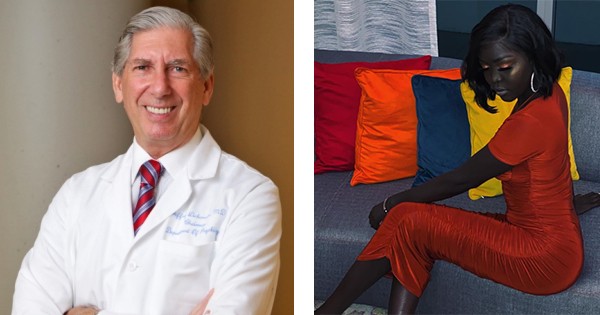Group says racism in mental health industry is rife and needs accountability

Nationwide — Rev. Frederick Shaw, founder of CCHR’s Task Force Against Racism and Modern-Day Eugenics and President of the NAACP Inglewood/South Bay Branch, has called for stronger actions to be taken in response to racism in the mental health system. This follows a recent racist tweet by Columbia University, New York, psychiatrist Jeffrey Lieberman who questioned whether having beautiful dark color skin, referring to model Ms. Nyakim Gatwech, was a “freak of nature.” Columbia University suspended him over the tweet.[1]Despite the American Psychiatric Association (APA) last year apologizing for its more than 170-year role in perpetuating racism and abusing people of color, Shaw says Lieberman’s comment is endemic of what is still happening in the mental health field. Shaw anticipates the APA’s revision of its Diagnostic and Statistical Manual of Mental Disorders (DSM-5) being released this month could exacerbate this. Lieberman was president of the APA when the manual was published in 2013 to enormous criticism about a lack of scientific truth and for pathologizing all aspects of life.
In the wake of racism protests throughout the U.S. in 2020, the APA added “an analysis of the effects racism” on mental disorders to the DSM-5 revision, which Shaw says could lead to more over-representation of African Americans, especially children, being labeled with a mental disorder and prescribed powerful antipsychotics, antidepressants, and stimulants. His Task Force’s website reveals a history of this abuse.
Lieberman also resigned as director of the New York State Psychiatric Institute. The Institute has its own history of conducting racist experiments involving dozens of 6- to 10-year-old Black or Hispanic boys, who were given fenfluramine to test a theory that violent or criminal behavior may be predicted by levels of certain brain chemicals. The drug’s side effects include serious heart and lung problems, abnormal behavior, irritability, seizures, and negativism.[2]
Shaw says psychiatry has long-viewed Blacks as prone to violence. Millions of research dollars have been poured into trying to “prove” this fallacy. Shaw points to the 1990s’ Committee to Stop the Violence Initiative, which was formed to expose and close the research program funded by the National Institute of Mental Health that searched for a non-existent violent gene in inner-city children, theorizing that the antidepressant Prozac could prevent violence.
In 1792, Benjamin Rush, the “father” of American psychiatry, justified segregation because he believed Blacks’ skin color was a disease called “negritude,” a form of leprosy. Rush also theorized that Blacks did not feel pain as intensively as whites. “Today, half of white medical trainees still believe such myths that Blacks have thicker skin or less sensitive nerve endings, leading to pain being under-treated,” Shaw said.
However, in the field of mental health, he says, the opposite is true—an over-presentation of psychiatric labeling and drugging, requiring greater accountability and an appropriate compensatory response to damaging racist treatment.
For more information, contact Sandy McKnown at racismtaskforce@cchr.org
Find out more about Rev. Frederick Shaw here.
References:
